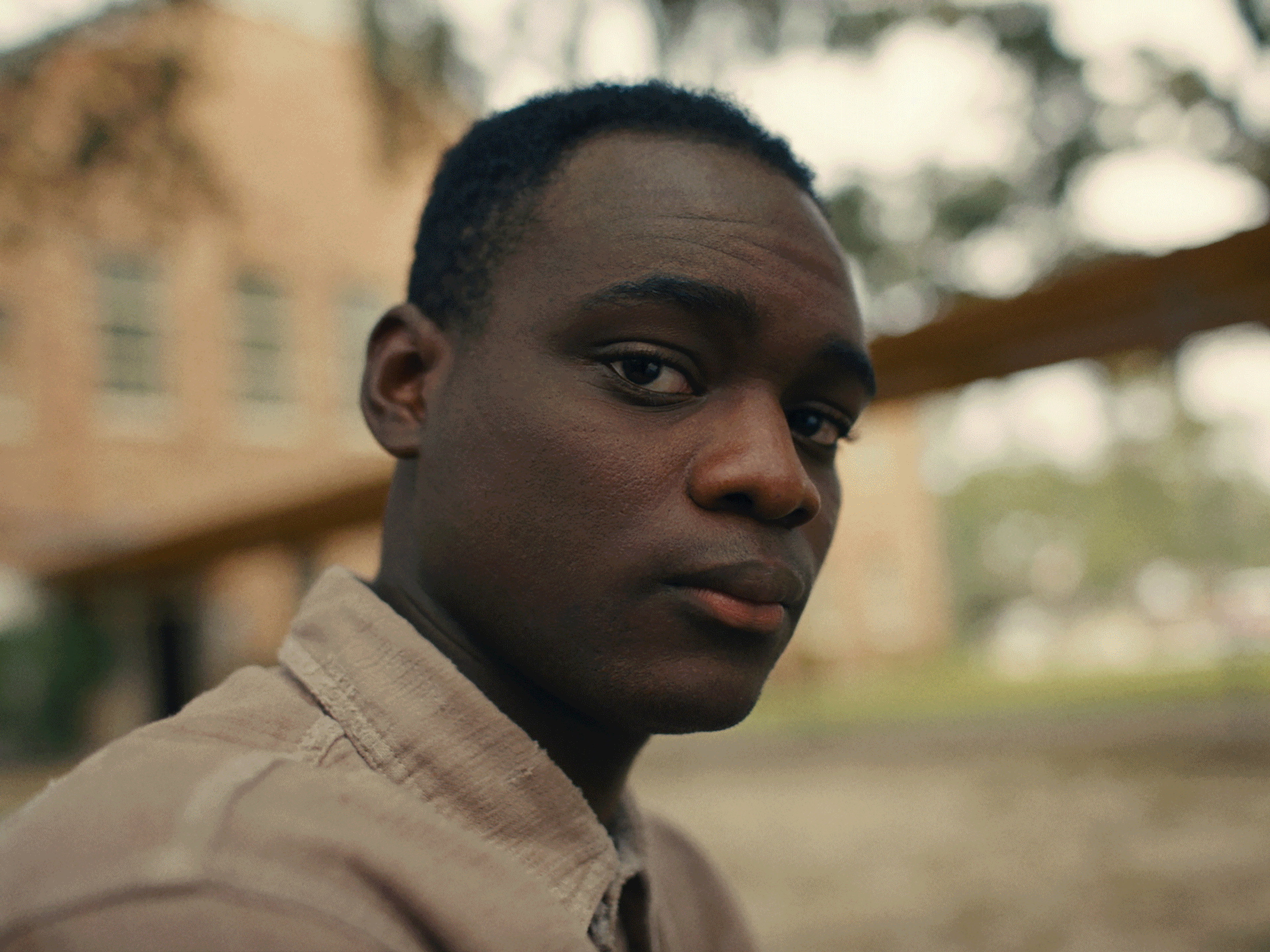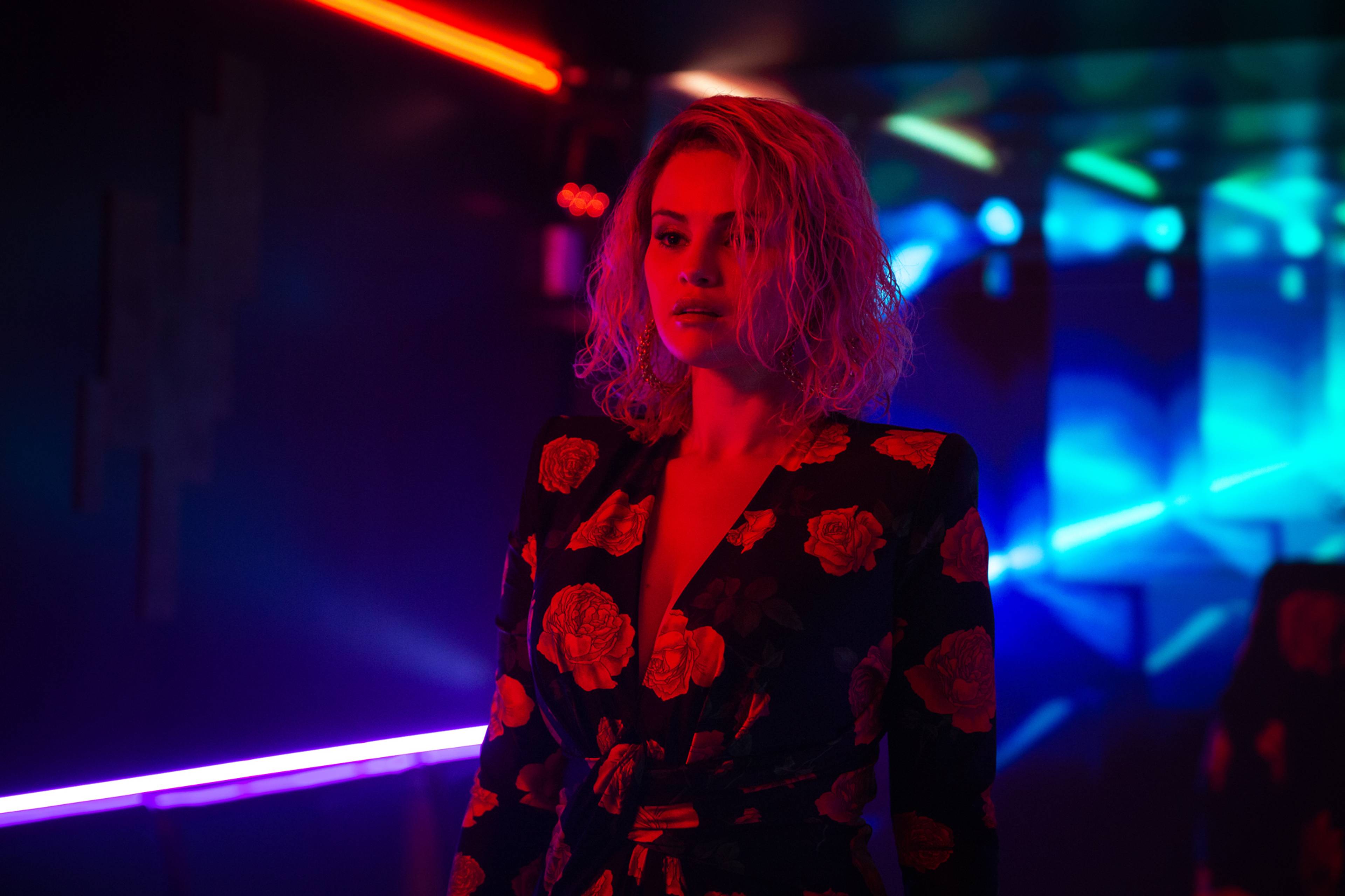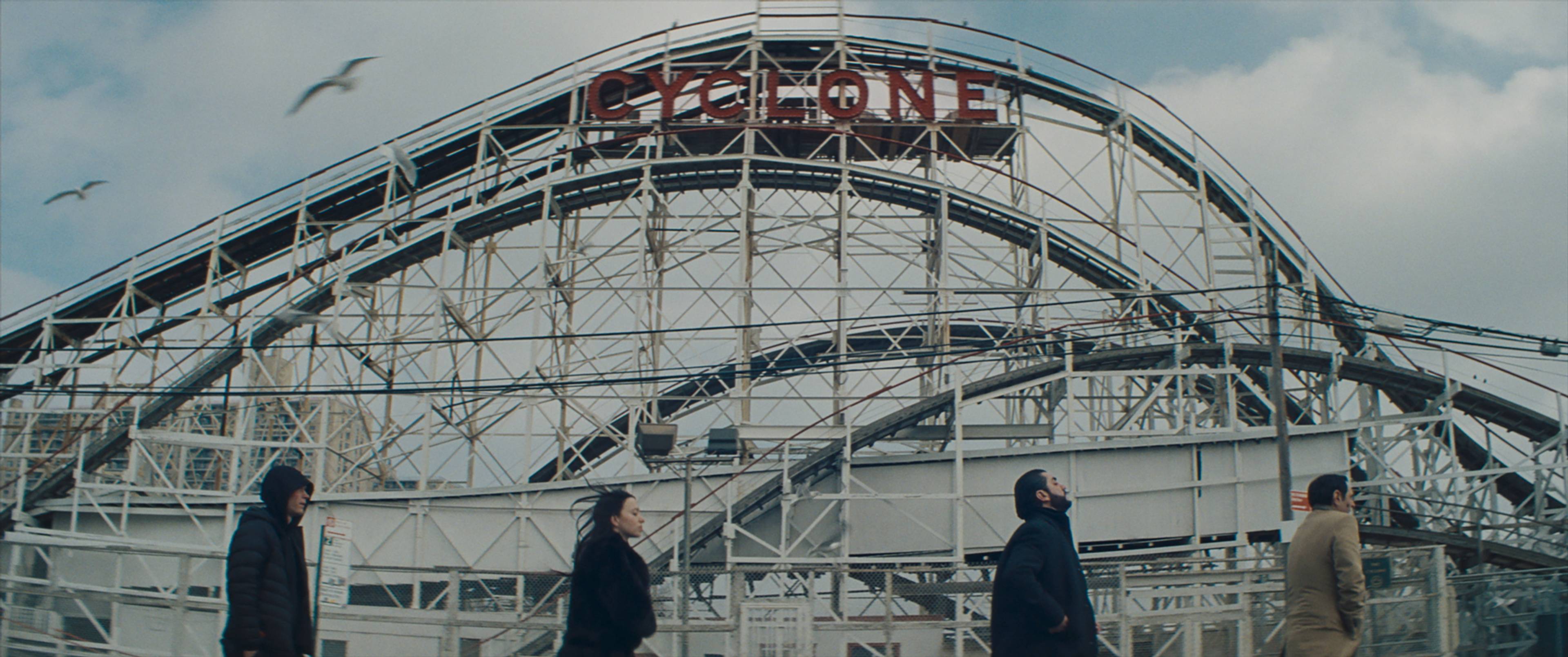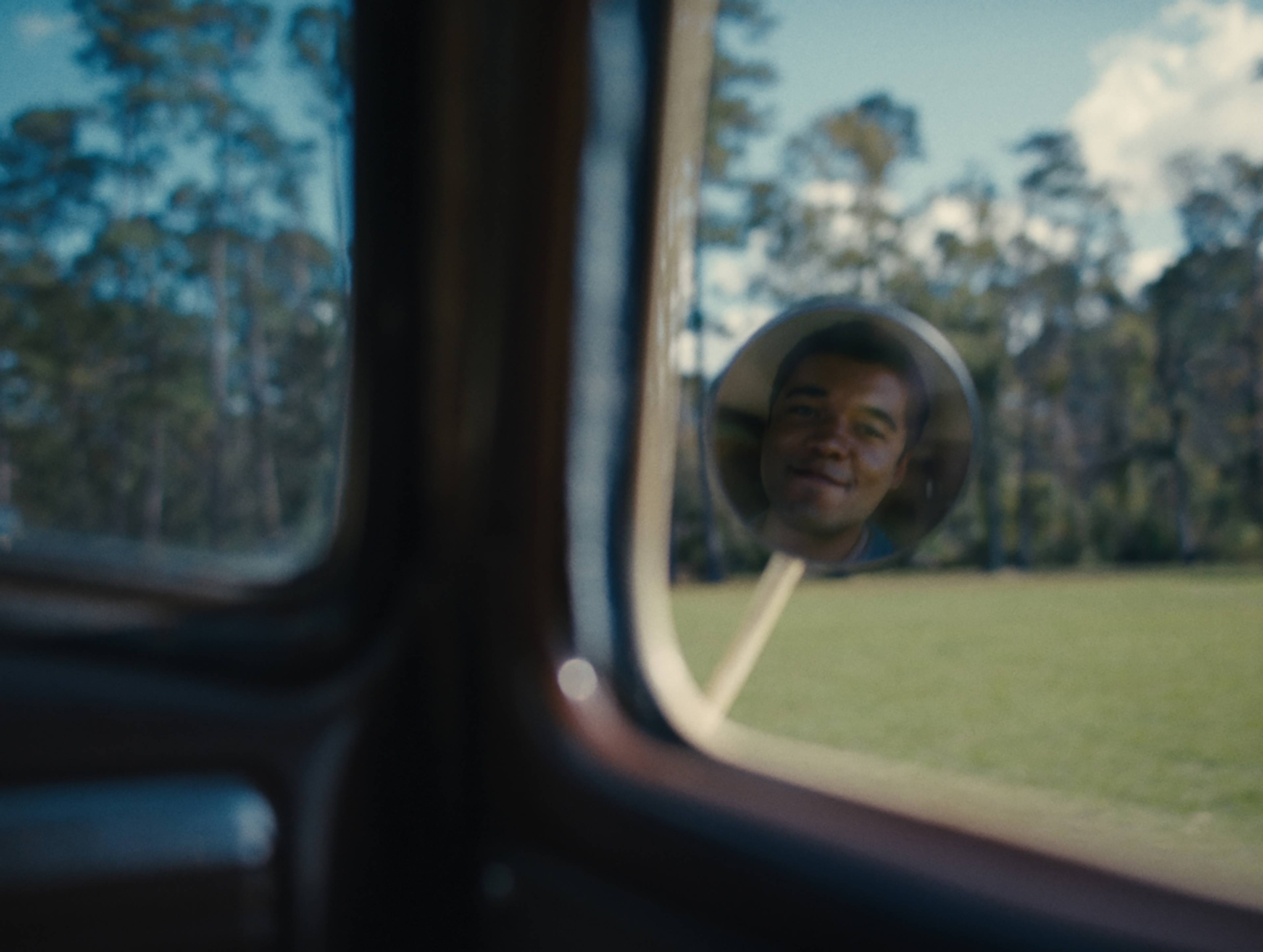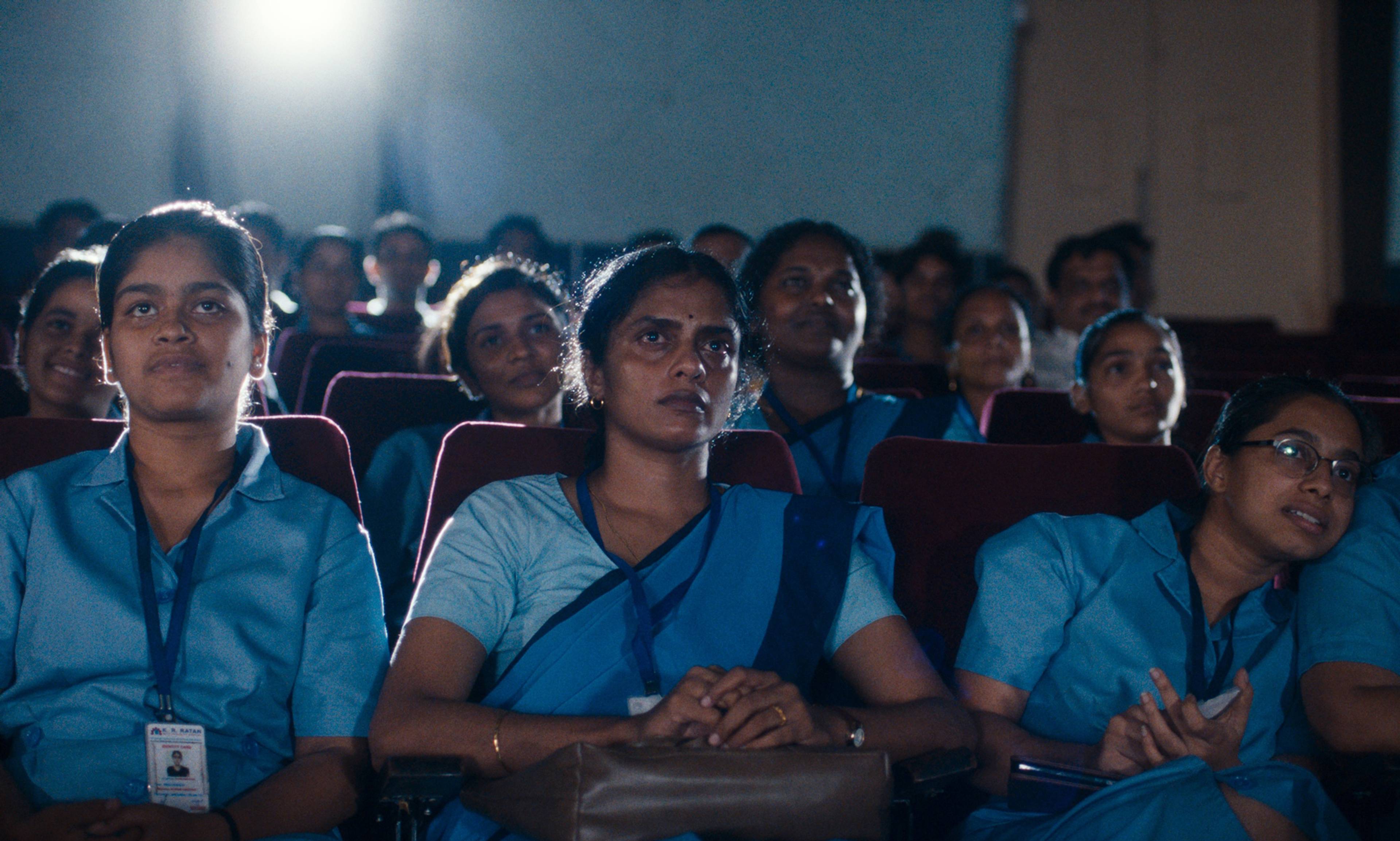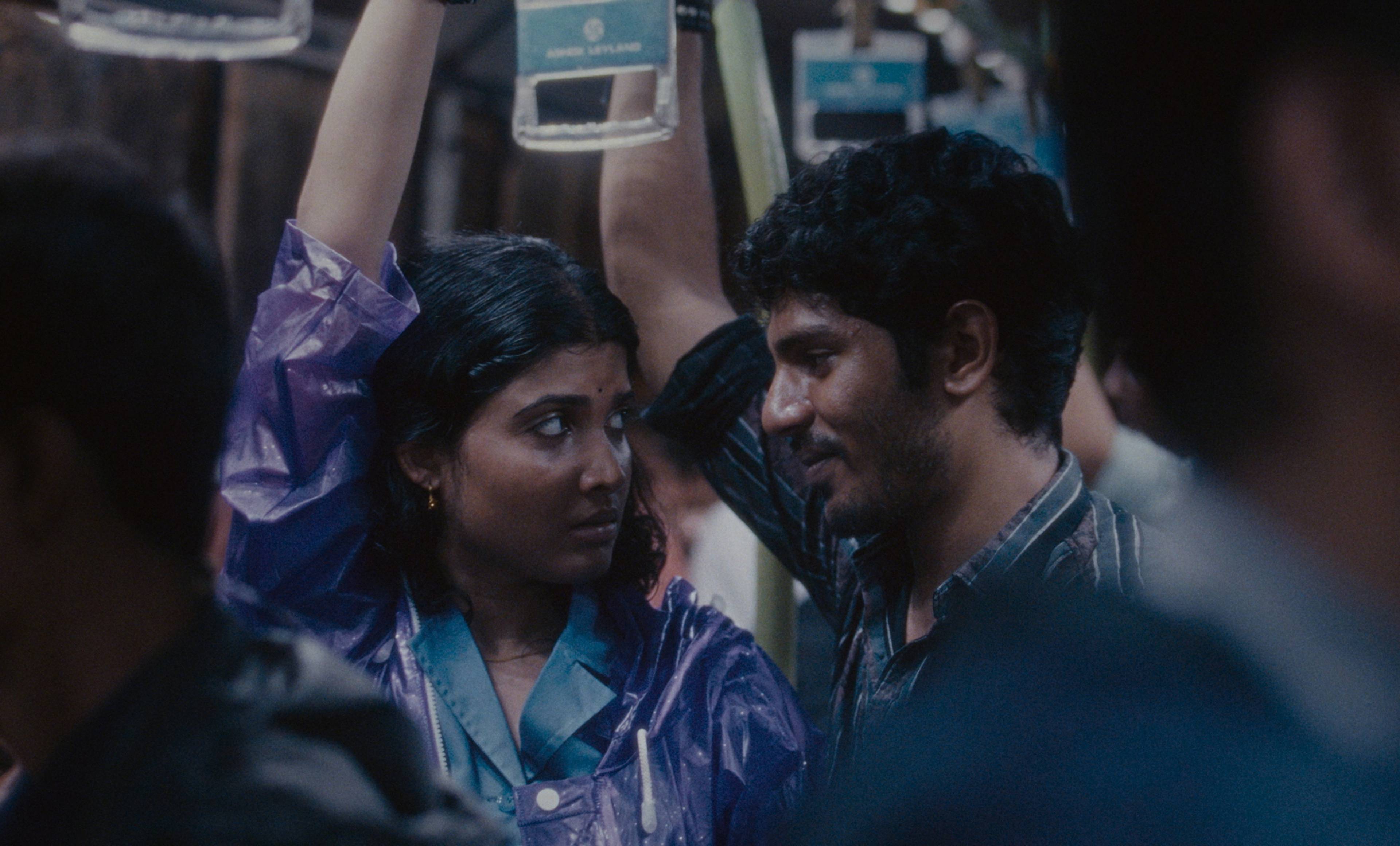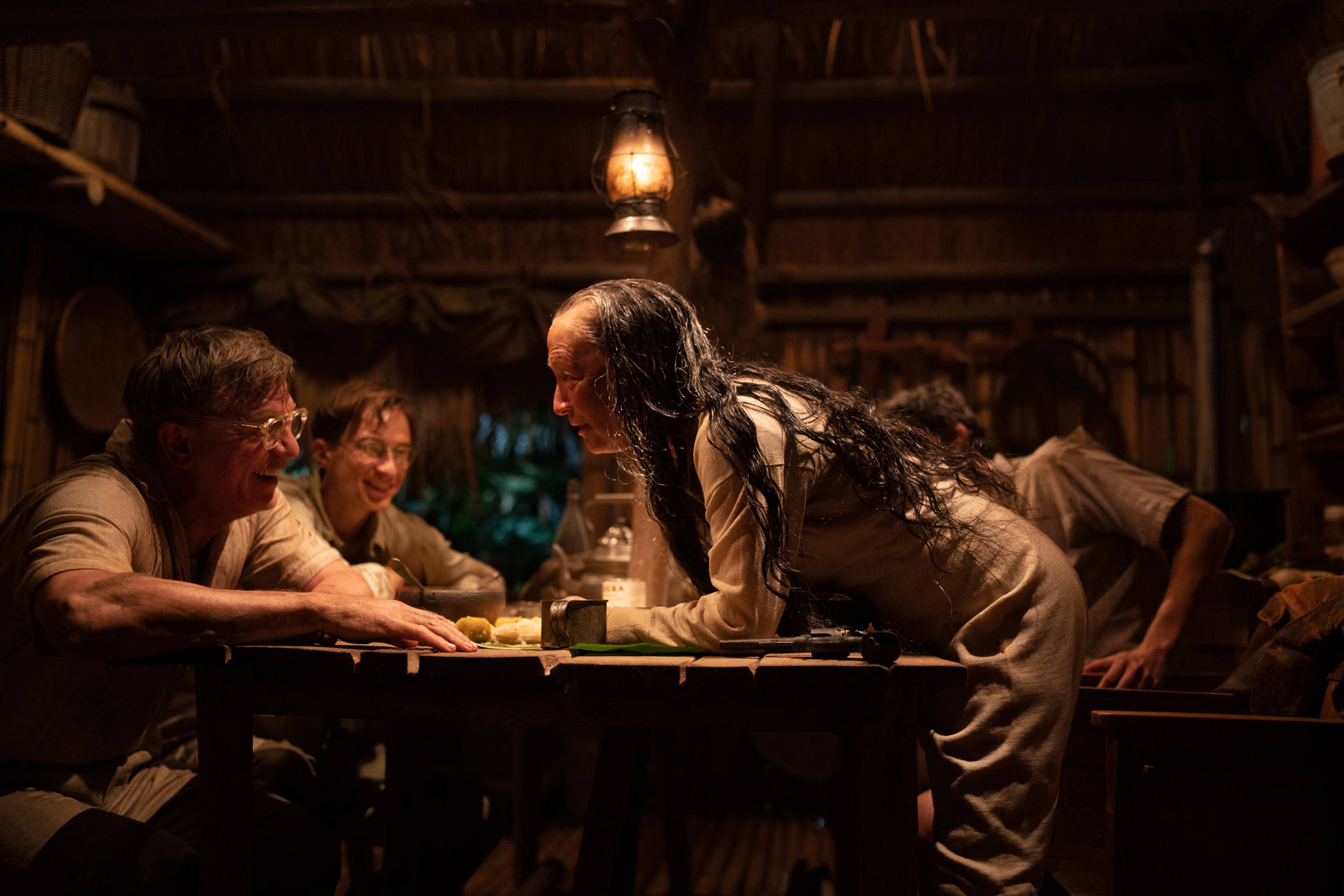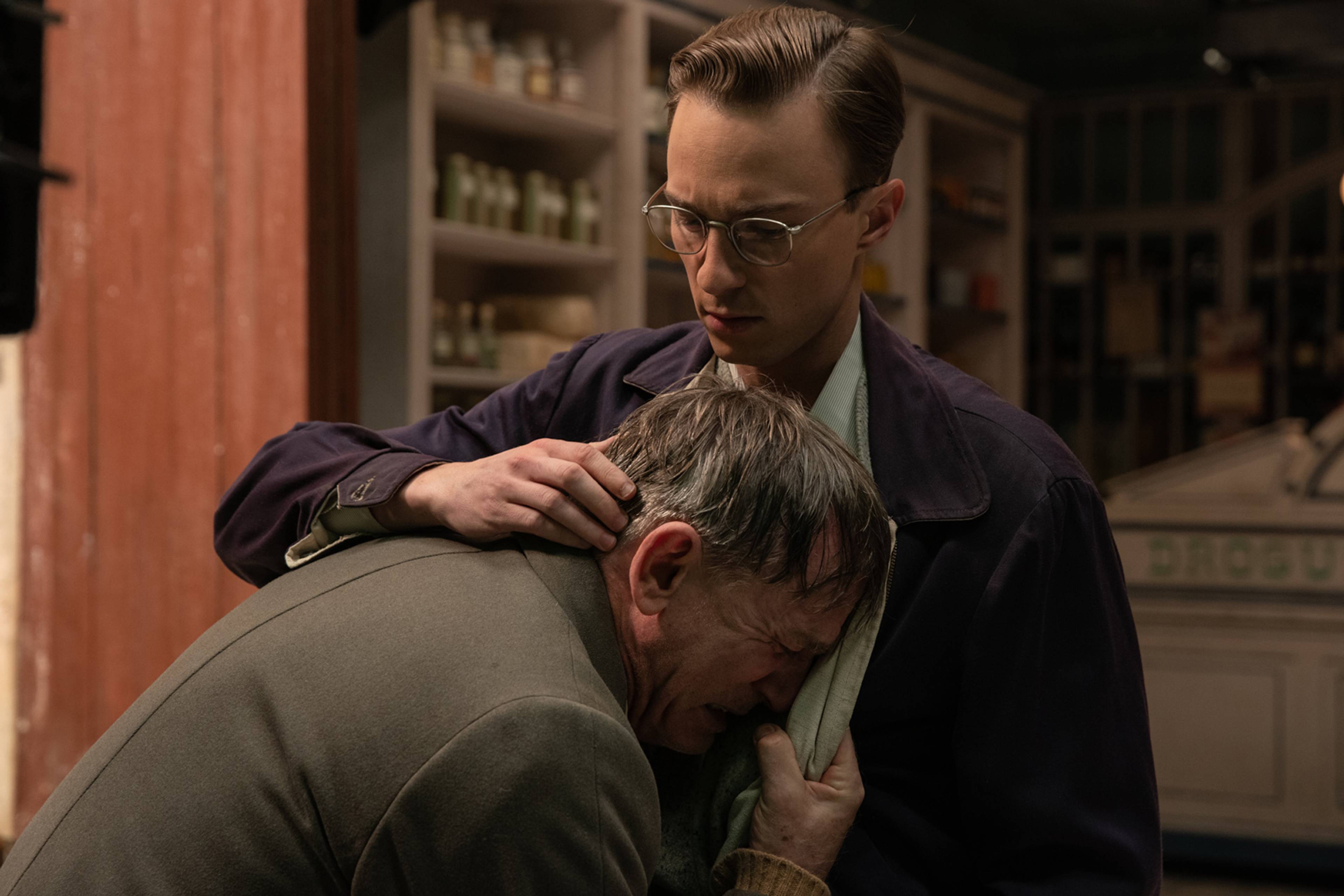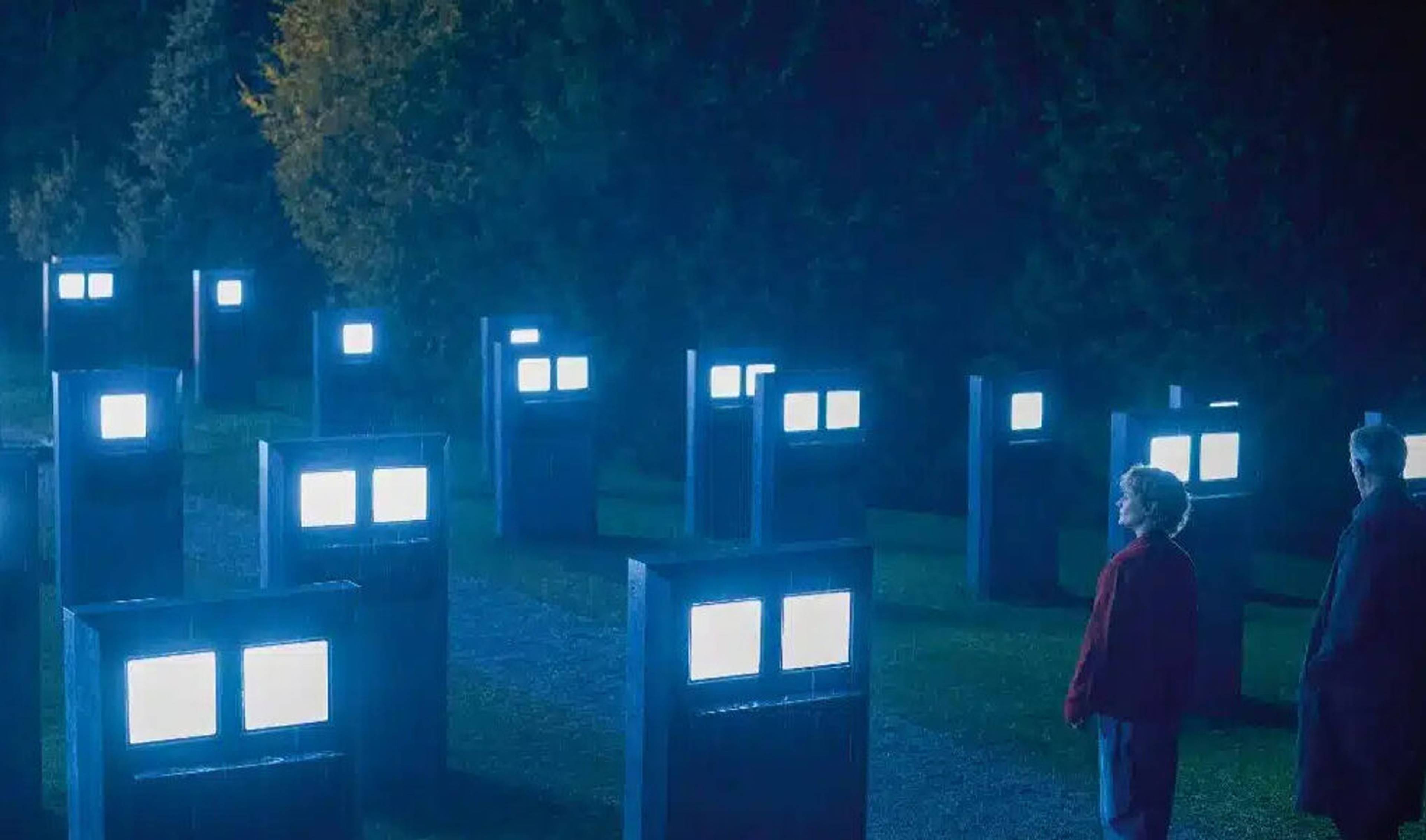Last month, as I was on my way out of an early screening of Emilia Perez (2024) – a tediously self-congratulatory Netflix musical costarring Selena Gomez – I ran into Gomez herself walking New York Film Festival’s (NYFF) equivalent of a red carpet (a ten-foot stretch of sidewalk leading to a service entrance of Alice Tully Hall) as a small handful of school children and professional autograph collectors bellowed for attention. A true star, Gomez acted like this was Venice or Cannes, sweeping austerely from one selfie to the next as though blinded by the light of a thousand flashbulbs. It was 4pm on a Monday.
Any European beach town can host a film festival, but it takes a truly great, overstimulating city to hold what might be the world’s most exciting lineup of new movies each year – only to ignore it completely. Held at Lincoln Center in uptown Manhattan, NYFF is the first point of confluence for the standout films of Cannes, Berlin, Toronto, and Venice, inaugurating their American theatrical runs and the road to Oscar season. In the city’s artistic circles, it’s treated with about as much interest as any other gallery opening. Every autumn, when my friends discover me in the state of glazed delirium that comes from watching twenty movies in one week, they always say, “Oh, I forgot that was happening.”
Still from Jacques Audiard, Emilia Pérez, 2024, 132 min. Courtesy: Netflix
The almost bureaucratic sense of obligation with which the festival is dispatched might be intentional, and flying below the radar can be handy when it comes to skirting controversy. NYFF’s most star-studded events take the form of laconic Q&A’s with Dennis Lim, the festival’s serenely dispassionate artistic director, which tend to market themselves more to Upper West Side retirees than, say, those wishing to protest the festival’s complicity with Bloomberg Philanthropies, an institution that, according to a petition signed by dozens of filmmakers and festival staff, “is directly implicated in facilitating settlement infrastructure in the West Bank and denying Palestinians their basic rights.” Entombed within the infrastructure of a performing arts complex, NYFF simply doesn’t get enough attention to disrupt.
Pomp and circumstance aside, any festival is only as exciting as its program, and in this respect, NYFF has quietly ascended to the pinnacle of cinephilic interest. Taking second dibs on the best of the summer’s international festivals strips away the excitement of a world premiere, but it’s also the first time these films are encountered by an audience beyond the cinematic intelligentsia. Together, they end up revealing thematic and artistic preoccupations that transcend any individual project. A week at the festival is a dose of pure zeitgeist.
Here are some of the films that exemplified the trends while standing out from the mélange of moving images.
Sean Baker – Anora (2024)
Those who would prefer a straighter romantic misadventure will find a glorious and grimy little gem in Anora. That’s the name of an exotic dancer (Mikey Madison) who works the back rooms of a very real-seeming nightclub off a dirty boulevard in Brighton Beach, the home of Brooklyn’s largest Slavic enclave. One night, Anora meets a boy named Vanya (Mark Eydelshteyn), whose father is an oligarch back in the old country, and who seems to be on a vacation away from the Fatherland. The two fuck like rabbits, and as several thousand dollars change hands, a giddy, precipitous feeling seems to waft up from their kinetic joyride – a feeling almost like love.
Stills from Sean Baker, Anora, 2024, 139 min. Courtesy: NEON
Sean Baker’s career has always revolved more or less around the personal lives of sex workers, and it’s here that he’s found an inexhaustible theme: calculating what we might call the emotional tax on exchanging affection for money. Those who pay for love mistake it for a renewable resource, but even the least emotionally invested act of appeasement takes a psychological toll. For Anora, the main commodity in question is her own dignity. In Madison’s performance, we are introduced into the truly exhilarating presence of someone who knows their worth but is willing to speculate on its value to others. It’s Baker’s sexiest, funniest, and saddest movie to date.
RaMell Ross – Nickel Boys (2024)
Adapted from Colson Whitehead’s 2019 historical novel of the same name, Nickel Boys is quite simply the most ambitious, cinematically rewarding movie of the year. That has everything to do with the ways it avoids the pitfalls of a traditional literary adaptation. Keeping Whitehead’s characters nominally intact, the director RaMell Ross takes a deconstructivist approach to the book’s central storyline, until he arrives at something that could never be translated back into words. The entire film takes the form of first-person POVs of the narrative’s central two characters, Elwood (Ethan Herisse) and Turner (Brandon Wilson). The result is poetic, experimental, and sometimes discomfiting – the camera moves about is if positioned between the eyes of these boys. That Ross (until now a poetic and observational documentarian) can construct complete narrative scenes out of such a constraint – like a boxing match closely followed from two complementary perspectives – is a triumph for filmmaking and an affirmation of his career-long interest in exploring intangible qualities like empathy through highly technical means.
Still from RaMell Ross, Nickel Boys, 2024, 140 min
Courtesy: Orion Pictures
The first third of Nickel Boys is a tone poem rhapsodizing the activities, household style, and sartorial choices (Ross is especially attentive to shoes) of a quietly proud, Black middle class in mid-century America. Enraptured by the beauty of this bygone era, Ross holds off on introducing the plot (Elwood’s arrival at the dreaded Nickel Academy) for as long as possible. When it does arrive, the film’s reluctance to leave behind a poetic sense of innocence is countered by a breathtaking shunt into the more conventional cinematic mode of shot/counter-shot dialogue, enabled by the epiphany that Elwood and Turner truly see one another (and, thus, can be seen by one another). As anyone who has read Whitehead’s Nickel Boys will know, this reflexivity is by no means accidental, and sets up a tidal wave of reckoning as the film’s ending hits home. Ross also balances his occasionally restrictive adherence to POV with remarkable moments of archival footage depicting Black life from the period. In a talkback, he identified his idiosyncratic use of old footage with Saidiya Hartman’s critique of the historical archive, thus situating Whitehead’s novel (and his expansive, quasi-transcendental take on its traumas) as a critical fabulation. The freedom of the film is absolutely intoxicating.
Payal Kapadia – All We Imagine as Light (2024)
Like RaMell Ross, Payal Kapadia is a documentarian now making her narrative feature debut – though Kapadia’s filmmaking renders that distinction almost completely obsolete. Her first feature, A Night of Knowing Nothing (2021), was billed as a documentary, but its on-the-ground footage of students protesting India’s rising ethnonationalism was framed by an epistolary narrative, seemingly fictional, in which a woman addresses an absent boyfriend of a different caste. Kapadia’s new film is a constructed narrative featuring well-chosen actors from India’s Malayalam and Hindi film industries. But the formula is almost exactly the same: Politics intrude into private lives marked by desire and longing.
Still from Payal Kapadia, All We Imagine as Light, 2024, 118 min
Courtesy: Sideshow/Janus Films
Kapadia’s film follows three Mumbaikar women as they work together, live together, and try to help each other out. The absent boyfriend is notably back – a poignant topic, to be sure, since Indians comprise the world’s largest diaspora. There’s a powerful scene where Prabha (Kani Kusruti), who has gone years without hearing from her emigrated husband, receives a fancy European rice cooker in the mail. There’s no note with the gift, but in her cluttered and colorful apartment, she cradles it like a lost lover. Elsewhere, her roommate, Anu (Divya Prabha), struggles to keep her relationship with a Muslim man a secret, while Parvaty (Chhaya Kadam), a cook at the medical clinic where the two other women work, is being forcibly evicted from her lean-to apartment to make way for a fancy new high rise.
All We Imagine as Light makes a compelling case for a localized attention. Kapadia’s characters can’t go anywhere in Mumbai without bumping into politics; the rapidly modernizing city is still constricted by ancient social mores. The care with which the director picks them apart and presents them deserves special mention, since these are so often merely the means to more dramatic ends.
Miguel Gomes – Grand Tour (2024)
I can’t tell whether I like the latest film by the sphinxlike Portuguese director Miguel Gomes – or whether I’m supposed to. Almost everything about the project is a little off. It’s set in 1918, but the B-roll was clearly shot during the pandemic, capturing an unmistakably modern Myanmar, Thailand, Cambodia, and China. It follows a white English couple, Edward (Gonçalo Waddington) and Molly (Crista Alfaiate), as one tries to outrun the other along an endless journey through South and East Asia – a storyline Gomes appropriated from a W. Somerset Maugham anecdote. But they address almost everyone they meet in Portuguese, while the voiceovers that introduce each leg of their journeys are performed by anonymous readers in the languages native to the new location. Are these two – who semi-consciously follow the route of the classic “grand tour” that was once a rite of passage for aristocratic Europeans – taking stock of their surroundings, or are they being taken stock of?
Still from Miguel Gomes, Grand Tour, 2024, 128 min. Courtesy: MUBI
Where Kapadia’s film is about the politics of place, Grand Tour is about the solipsism of placelessness. What’s less clear is whether the film is aware of its own moral. To capture the B-roll that undergirds his film, Gomes and his producers went on a grand tour of their own – an experience which seems to have taught them nothing about the places they visited. The action of the film, which was shot entirely on old-fashioned studio sets, feels more rooted in the conventions and stylistic flourishes of 1930s screwball comedies than in any one place it is supposed to be “set.” For the main characters, white travelers surrounded by phalanxes of luggage-carrying servants, the main experience of their destinations lies in the difference between a mai tai and a Singapore sling.
In its own weird way, Grand Tour mocks the warped logic of colonial imperialism, which seeks to make the whole world a reflection of oneself. But there’s an undeniable sense of nostalgia for this period, or, at least, for the cinema it produced. It’s only thanks to Gomes’s powers of appropriation and pastiche that the film can transcend that problematic fixation and become something more interesting.
Luca Guadagnino – Queer (2024)
The most seductive moment of Queer is actually borrowed from another movie: Jean Cocteau’s Orpheus (1950), which plays to a grand and empty cinema as Lee (Daniel Craig) and Eugene (Drew Starkey) watch from the balcony. In the film, Orpheus is about to enter the underworld for the first time, through the mirror in his bedroom wardrobe. He’s instructed in the process by Death’s henchman, Heurtebise. In Gudagnino’s hands, this mythic scene is recast as a moment of queer initiation, the interaction of the two men suddenly crackling with desire.
“Perhaps you’re afraid,” Heurtebise suggests, of the portal between life and death.
“No,” Orpheus replies. “But this mirror is still a mirror. And in it, I see an unhappy man.”
“You just have to believe,” Heurtebise says, and, touching him lightly from behind, the two men enter into the dreamworld together.
Still from Luca Guadagnino, Queer, 2024, 135 min.
Courtesy: A24
For Lee, entering into the dreamworld with another man is impossible, because it first involves taking a hard look in the mirror. Adapted from William S. Burroughs’s 1985 cult novel of the same name, the protagonist (a lightly fictionalized Burroughs) keeps his distance from his feelings though a constant array of alcohol and opiates, as well as a lot of fast talk that, in Craig’s performance, swings brilliantly between bitter and arch. But there’s little point denying his almost painful crush on Eugene, a recently discharged Navy seaman who enjoys Lee’s affection without ever fully indicating that he swings the same way. Twice, the refrain of self-denial echoes (first from Lee, then from Eugene): “I’m not queer, I’m disembodied.” Meaning: I cannot assimilate my desire in a way that lets me live with myself.
A film full of drunken lapses and clumsy passes, calling it Queer almost seems like false advertising, given the positivity and hope that word carries with it today. It is certainly not what I was expecting from Guadagnino’s first gay love story since Call Me By Your Name (2017). In a shocking upset, no one plays with their food. The story builds to anticlimax – even Lee and Eugene’s shared ayahuasca trip (which takes up a good part of the film’s latter half) offers no breakthroughs. Instead, Queer is a chronicle of the sadness and survival strategies of queer men before the gay rights movement. In its litany of frustrations, the film suggests the impossibility of self-actualization without a relational politics.
David Cronenberg – The Shrouds (2024)
Disturbing and bizarre, with an absolutely incomprehensible plot, The Shrouds is nonetheless brilliant for drawing so effectively on this festival season’s most enduring theme: the unreliability of the image. That might seem like a counterintuitive subject for motion picture to take up. But photography’s paradox – that a picture is simultaneously manufactured and indexical to the moment it captures – animates some of this year’s best filmmaking, from the contrasts between verité and studio footage in Grand Tour, to the general dissolution of “fiction” and “nonfiction” filmmaking in All We Imagine As Light. The Shrouds takes the anxiety around photographic veracity to new heights, while baldly exposing the fear of death that lies behind our constant impulse to capture and rewind.
Cronenberg’s latest stars as Karsh (Vincent Cassel, who looks nearly identical to the darkly iconic director), a man who has invented a kind of ultra-HD, wraparound camera-cocoon that he uses to interactively visualize his dead wife’s decaying corpse. He runs a small, chic cemetery for the relatives of likeminded weirdos; on the front of each black marble headstone is a small video monitor. Zooming in on his wife’s skulls seems to bring Karsh untold comfort (and possibly fetishistic pleasure). So it’s naturally quite distressing to him when the grave is vandalized and the video feed cut. She’s still there, in the ground beneath his feet, but casting his eyes to the dirt is just not the same.
Still from David Cronenberg, The Shrouds, 2024, 119 min.
We never learn definitively who cut the feed or why, and one can waste a lot of time trying to search the film for clues. Instead, notice the ways lesser versions of Karsh’s wife seems to multiply before him – in a still-living identical twin sister (Diane Krudger), for instance, or his AI-powered virtual assistant. I was particularly struck by the scenes where Karsh glides around in his Tesla, the real world outside the windows seemingly obsolete compared to the car’s 3D-rendered navigations system.
Cronenberg lost his wife to cancer in 2017. His previous film, Crimes of the Future (2022), followed a team of doctors with an erotic fascination in tumorous “new organs” they found growing inside patients. As ever, there’s the sense in Cronenberg’s work of a man taking his most dire and convoluted thoughts about desire, mortality, and political freedom and putting them in a blender, then drinking the results. But amidst the specter of plot and its many red herrings, we watch a proud, unflappable man slowly learn how to move on, and to make do with his unending loss.
___
New York Film Festival 62
Film at Lincoln Center, New York
27 Sep – 14 Oct 2024


